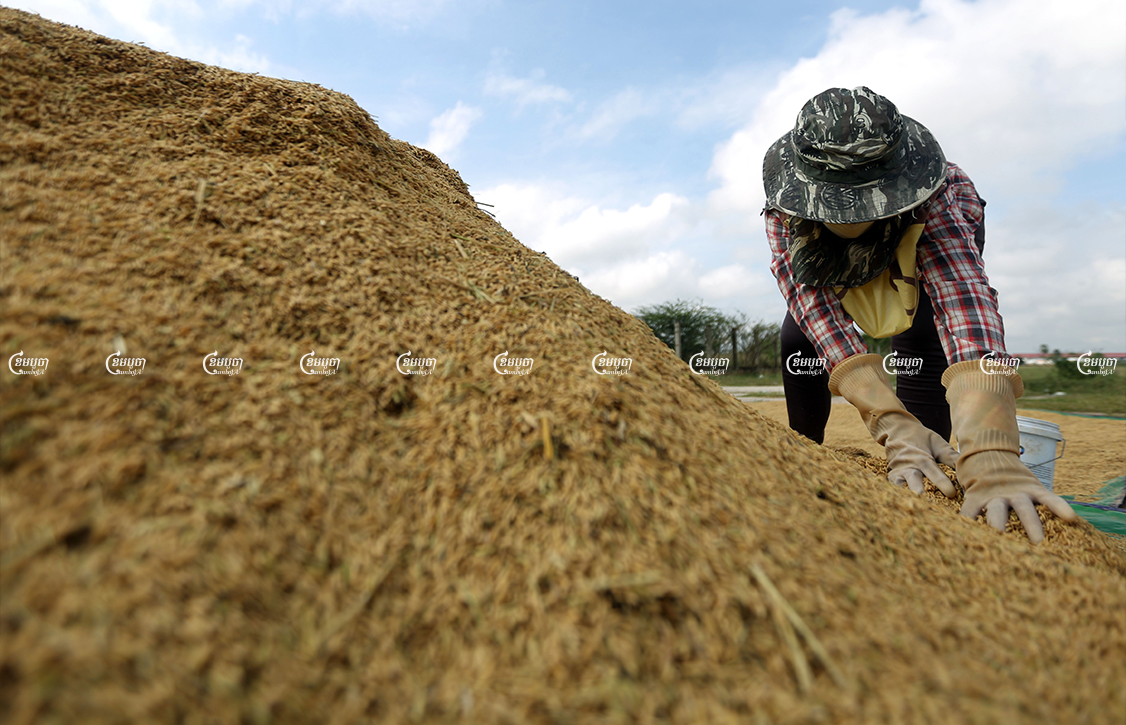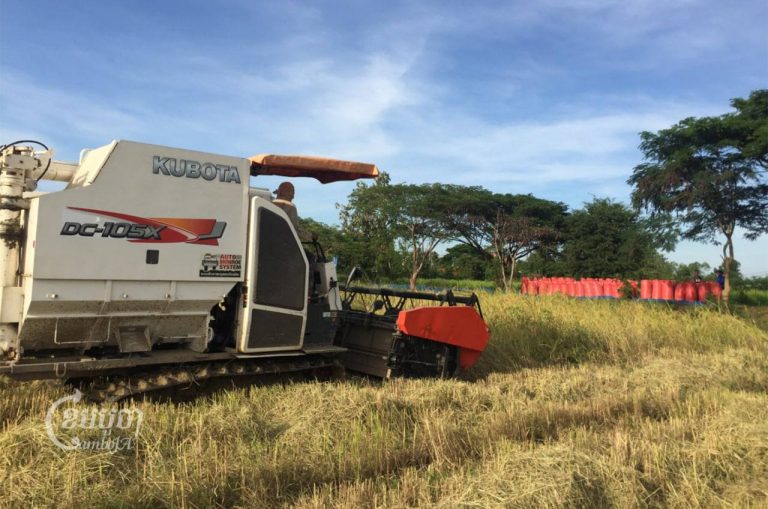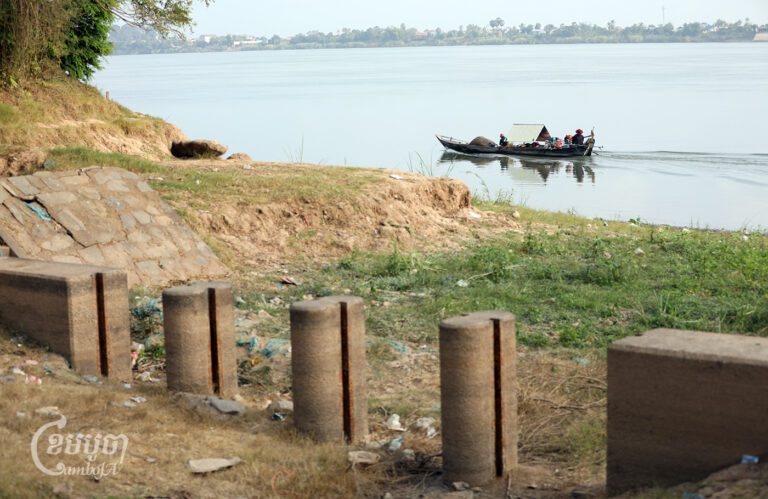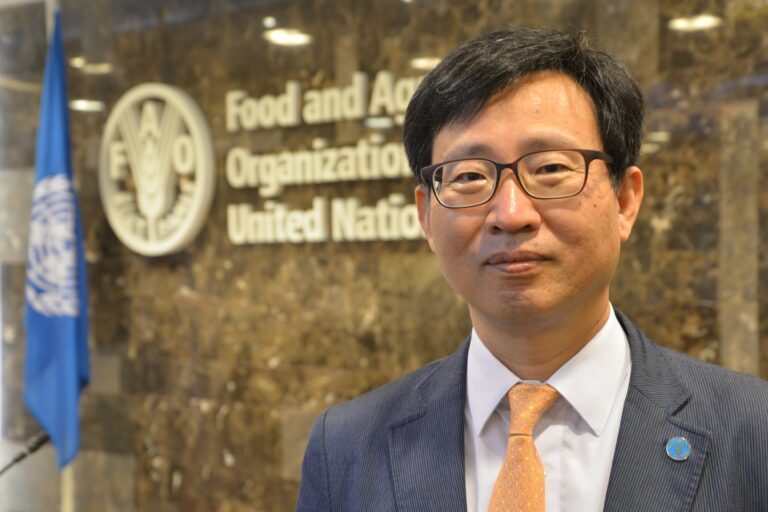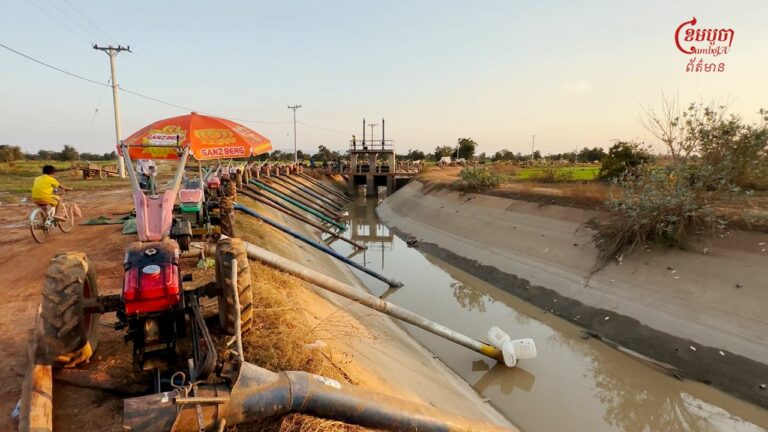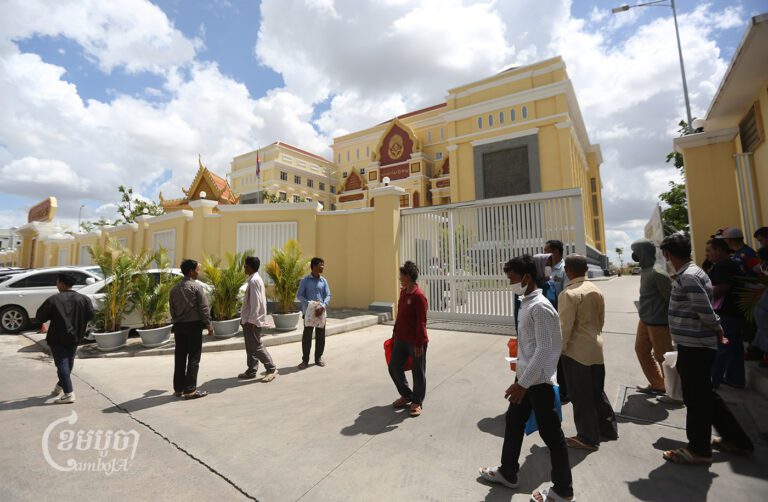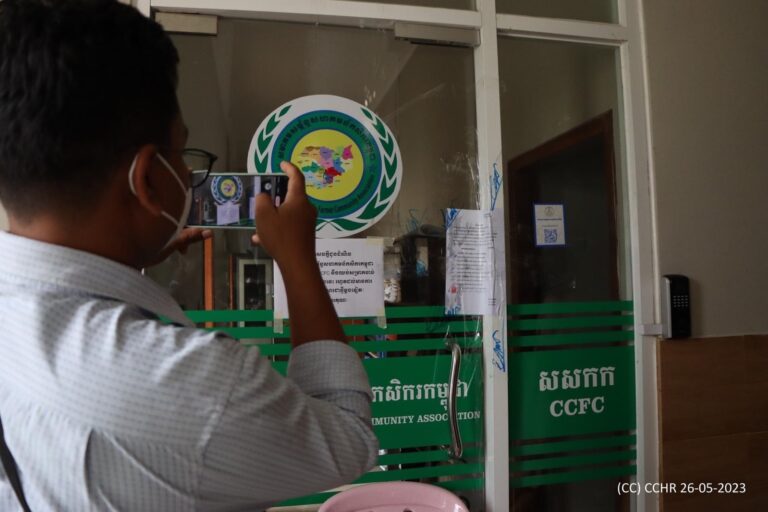Just months before the start of the Cambodia-China Free Trade Agreement, low prices for paddy rice and a change in buying policy from one of Cambodia’s leading rice export companies are leaving some local farmers struggling to recoup costs
Soeung Sak, a farmer in the Tram Kak district of Takeo province, said he wants the government to ensure a regular market for paddy rice with affordable prices. He said current prices are too low to cover the cost of cultivation.
“Farmers might earn only once a year from farming, and we want farmers to enjoy selling [their] products,” he said. “I do not know exactly who will be able to help us solve this market problem, but I just know the government has many related ministries that help farmers.”
Sak, who cultivates on two hectares of land with a yield of about 6 tons of rice per year, said he had previously borrowed $7,000 from the bank to buy more farmland. He depends on his wife who works at a garment factory to pay off debt.
He said when the price of rice increases, he can earn more than $1,000 a year, which can pay off debts during the harvest season.
“We have to save all my wife’s salary to prepare for the end of the harvest season,” he said. “Without additional income from my wife, I would not be able to repay debt if I were to depend on farming alone.”
Some other farmers who depend on cross-border sales to Vietnam have also experienced falling prices. One farmer, 66-year-old Pol Sek, told CamboJA there was less demand for her rice from Vietnamese traders.
“It is too cheap, and I cannot even to pay cover the cost which continues rising,” she said.
Pol Sek farms in Svay Rieng and said the price of her paddy rice has fallen to 840 riel per kilogram, down from the range of anywhere between 940-1,000 riel that she got last year. She said damage from flooding is another factor pushing rice prices down.
Sek said she also spends a lot of money on rising production costs such as that of chemical fertilizer, land fees and especially gasoline prices.

Some Cambodian farmers are also challenged by a change in policy from Amru Rice, a major Cambodian exporter, to no longer purchase wet rice.
Song Saran, president of Amru Rice, told CamboJA that the company’s drying plants are too far away to buy wet rice from remote communities.
“We need to take time for long distance transportation, so it will damage the [rice] and at that time both farmers and company will lose,” he said, adding that the company’s dryers are in Kampong Cham and Kampong Thom provinces.
Amru Rice currently works with more than 70 rice communities and has signed contracts to purchase 20,000 tons of organic rice per year from farmers.
Saran said the price of organic rice is 30-50 percent higher than normal rice.
Higher prices are a key incentive to working with Amru, but some organic rice farmers are finding themselves unable to realize those gains.
Chum Chan is the vice president of the Phnom Damrey Romeal agriculture community, which produces organic rice in Takeo province. Chan said the community has a contract with Amru to supply more than 2,000 tons of organic paddy rice, but the company’s change to deny purchase of wet rice has pushed farmers to sell their rice to brokers for a cheaper price.
“The company asks farmers to dry their rice paddy, or they will not accept,” he said. “Because they cannot wait, they need to sell to traders immediately to pay debt.”
Chan also said farmers get better prices for organic rice than non-organic products, and that last year Amru offered 1,250 riel per kilogram for wet rice and 1,500 riels for dry rice. However, this year the company offers only 1,380 riel per kilogram for dry rice while refusing to accept the wet rice altogether.
A lack of stable commodity prices can present challenges to most farmers, but economic boosters in Cambodia are pointing to its upcoming free trade agreement with China as a new step into a major market.

Prime Minister Hun Sen, who has repeatedly announced reliance on China for different national goals, said on Tuesday that Cambodia’s economic growth will remain strong due to the agricultural sector.
“The country’s agricultural sector remains as normal and surpasses the target,” he said. “The export value of agricultural products is bigger than before.”
Hun Sen said the Cambodia-China Free Trade Agreement, which will come into effect from January 1, will grant Cambodia more opportunities to strengthen the agriculture sector and export produce abroad, especially to China.
Amru executive Saran, who is also the president of Cambodia Rice Federation, agreed with Hun Sen, adding that the agreement will allow Cambodia to focus more on processing and exports. Cambodia exported more than 200,000 tons of rice to China in the first nine months of this year, Saran added, and expects to export to China a total of 300,000 tons this year.
“I have more optimism over the China market and the agreement will provide more benefits to Cambodian farmers,” Saran said.
According to Ministry of Agriculture figures released in October, Cambodia exported in the first 10 months of the year total agricultural products valued at more than $4 billion to 68 target countries.
The ministry’s spokesman and Veng Sakhon, the minister of agriculture, could not be reached for comment.
Back in the Phnom Damrey Romeal agricultural community, Chum Chan said local farmers have not heard of the upcoming trade agreement with China. In his community, Chan said, the biggest thing farmers want to see is price stability.
“I don’t know the information about the agreement; however, I think that if the government could find more markets for farmers, then it will be good,” he said. “We just need the government to ensure the regular market price for rice paddy. So, this will encourage farmers to produce more.”
Additional reporting by Ngay Nai


